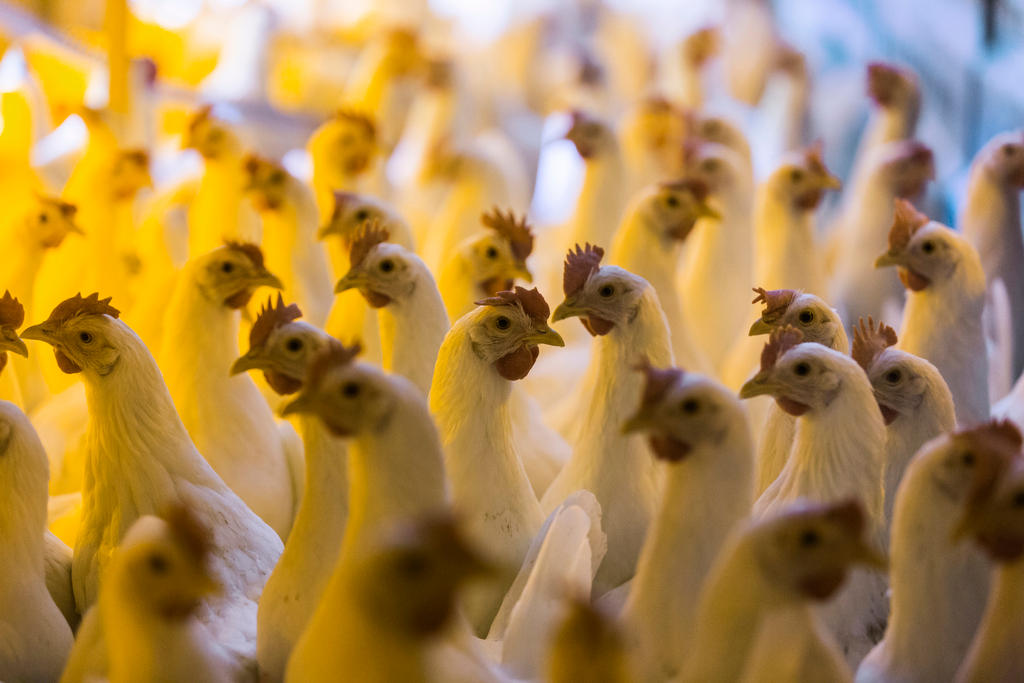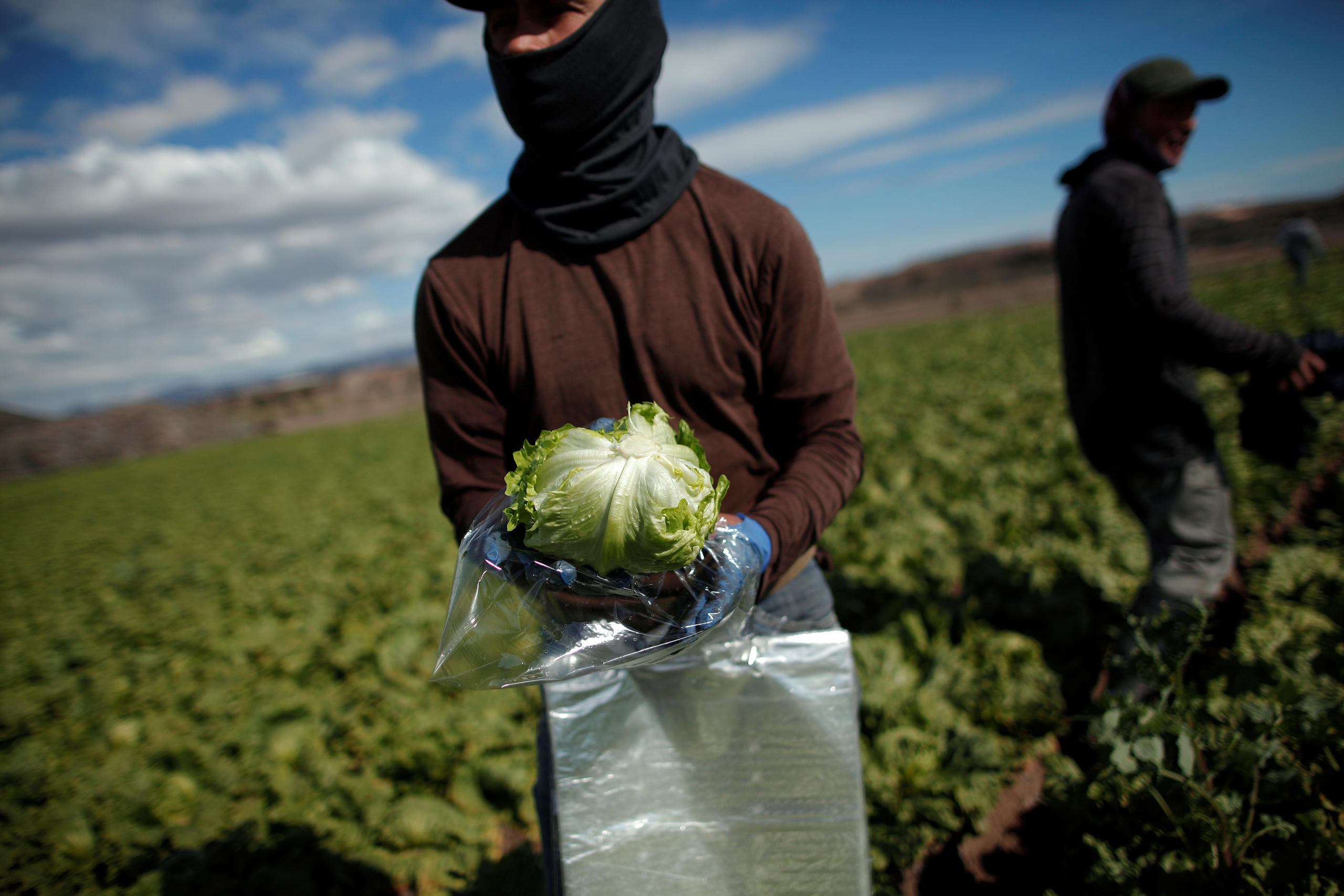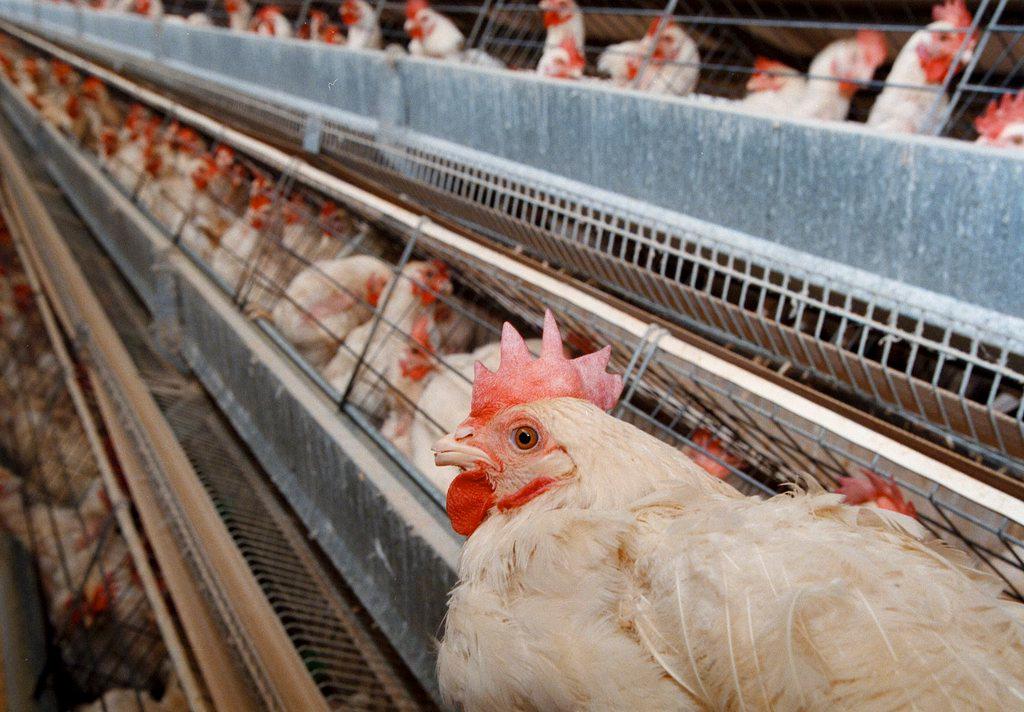Sovereign food initiative: support your local farmers
The initiative for food sovereignty strengthens direct trade between farmers and consumers as well as regional structures, ensuring jobs for rural areas, write Ulrike Minkner and Mathias Stalder of Uniterre, a western Switzerland farmers’ union.
The federal agricultural policy and the framework for direct payments are constantly re-evaluated and determined over a hectic four-year rhythm. Agreements from the last agricultural policy, on which farmers have been relying, are repeatedly called into question.
The proposed initiative for food sovereignty aims at a more stable constitutional amendment. It offers durable direction at the political level, as well as a reliable and sustainable regulatory framework for farmers and consumers.

Free markets don’t free the farmers. At the start of November 2017, the federal government blind-sided farming organisations and voters with its “overview of further development of the agricultural policy in the mid-term”. This came just two months after a September 24 vote where the people had decisively – some 78% in favour – accepted a counter-proposal to the food security initiative and for domestic agriculture.
What can we expect? The government’s strategy of further liberalising the marketplace by negotiating free trade agreements with the Mercosur nations (including Brazil and Argentina) as well as Malaysia and Indonesia (where there is a palm-oil problem) goes against the clearly-expressed will of the people. The aim is to dismantle standards and trade rules. The proposal from St Gallen farmers’ representative and parliamentarian Walter Müller (FDP) is clear: “Swiss pay rates mean Swiss prices for foodstuffs. Protection at the border for pay rates requires protection at the border for agricultural products; that’s all there is to it.”
A level playing field. In the near future we will see further initiatives, because healthy foods have become a major concern of the voting public. The coming initiatives (on drinking water, pesticide-free Swiss agriculture, no livestock mega-farming, etc.) demand higher standards in the production of foodstuffs in the country. If these are successful, farmers would hold a trump card – imported foodstuffs too would have to conform to these high standards. That will be decisive for the future viability of agriculture in Switzerland.
Let’s establish the right regulatory framework. Switzerland already protects its home market and regulates the volume of imported goods. This initiative demands not more market regulation, but regulation using different criteria. Not only quantities would be managed, like today, but quality standards would also be imposed.
Keep regulatory measures like import duties. We demand the maintenance of tariff protections right up to import bans (Art. 18 of the Agriculture Act) on products which do not meet our standards, such as hormone-modified beef or genetically-modified crops. Economic historian Tobias Straumann has made it clear: “import duties are far from being an exception; they are the rule around the world. So let us stick to them. If we want to shape a really sustainable agricultural economy, ecological and social considerations need to be combined with economic ones – as the initiative for food sovereignty is doing.”

More
Sovereign food initiative: a vision with costly consequences
No dumping of surpluses. Realistic milk market regulation needs a functioning system to adjust quantities in order to react to market fluctuations. That does not imply the government determining quantities or fixing prices, but a regulatory environment that ensures that supply corresponds to demand. Milk is a good example. For over ten years, too much milk has been produced, which leads to surpluses. These are then “dumped” at low prices abroad. Dairy farmers here and elsewhere suffer the consequences.
A system of controls that is economical for government. Ernst Frischknecht, an organic farmer, has written: “the initiative is not only reasonable from an economic and business point of view, it will also lead to efficient and economical controls.” Frischknecht goes on to say: “an agricultural economy aimed at maximum imports of materials and at the highest yields creates only the illusion of security. With the passing of this initiative, agriculture will change from a sector needing all kinds of cossetting to a valued partner in a sustainable national economy.”
Real solutions to the climate change crisis. The World Development Report on agriculture (2008) and the Sustainable Development Goals of the United Nations to combat hunger and encourage sustainable agriculture are important models for our initiative. The climate change scenarios are unmistakeable – heatwaves, downpours, all kinds of extreme weather are on the increase. Agriculture must adapt to this. Locally-adapted varieties and species-rich, resource-efficient agricultural ecosystems are the answer.
Democratisation instead of monopolies. The initiative strengthens direct trade between farmers and consumers and regional processing, storage and marketing systems. It keeps and creates jobs on the farm and on the land, and builds bridges between town and country. It will let the younger generation once again see a future for themselves in agriculture.
The initiative for food sovereignty offers us a unique opportunity to get politicians to think differently, with the active contribution of ordinary people. It means a change from the existing agricultural policy to a policy that puts the focus on people, environment, nature and healthy local food production. Food security is a global challenge.
Town and country standing together, in solidarity with people world-wide. With a “yes” on Sept. 23 2018, Swiss voters can put these concerns at the centre of food policy.
swissinfo.ch publishes op-ed articles by contributors writing on a wide range of topics – Swiss issues or those that impact Switzerland. The selection of articles presents a diversity of opinions designed to enrich the debate on the issues discussed.
Translated from French by Terence MacNamee, swissinfo.ch

In compliance with the JTI standards
More: SWI swissinfo.ch certified by the Journalism Trust Initiative












You can find an overview of ongoing debates with our journalists here . Please join us!
If you want to start a conversation about a topic raised in this article or want to report factual errors, email us at english@swissinfo.ch.